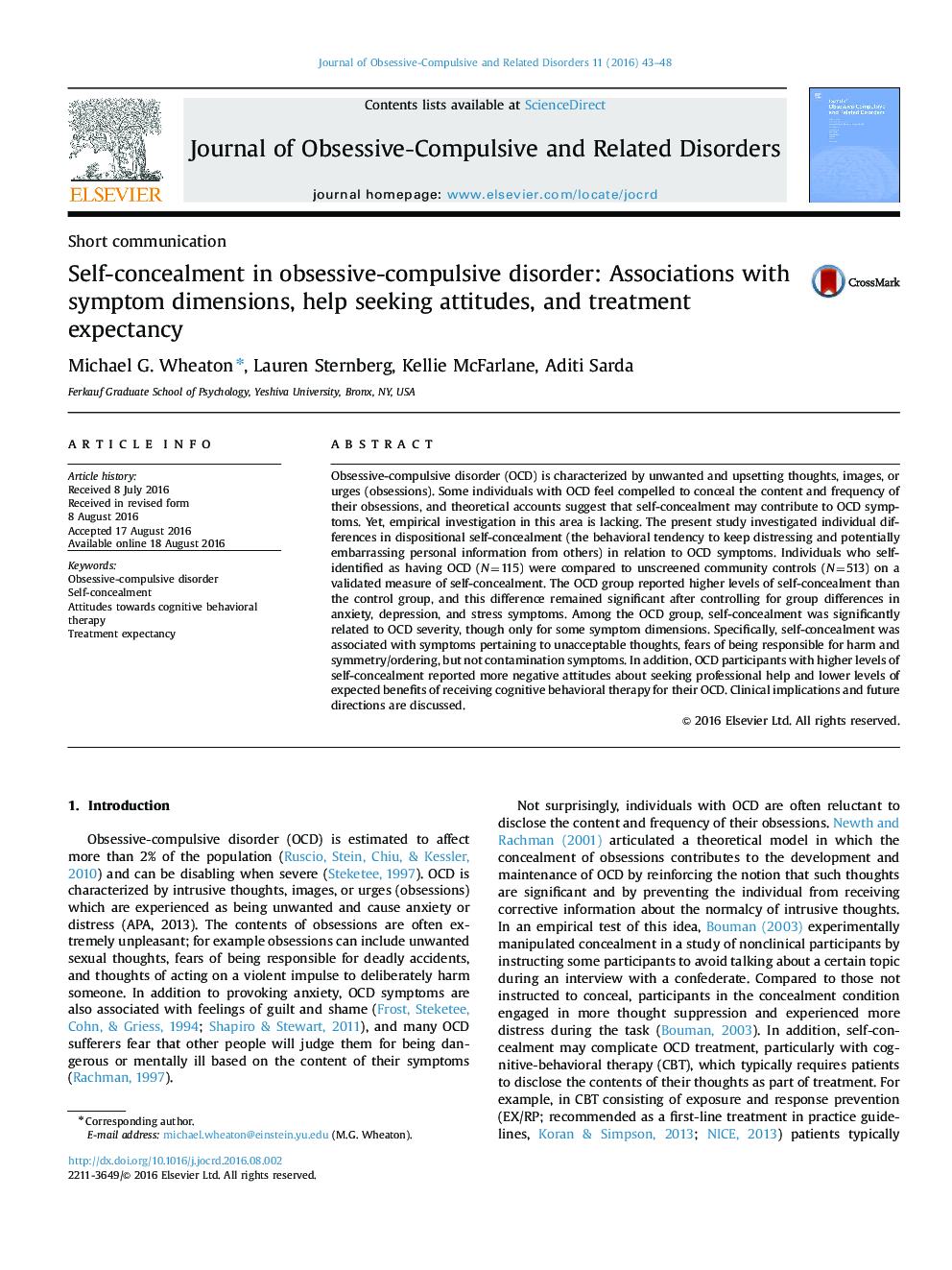| کد مقاله | کد نشریه | سال انتشار | مقاله انگلیسی | نسخه تمام متن |
|---|---|---|---|---|
| 912165 | 1473196 | 2016 | 6 صفحه PDF | دانلود رایگان |
• We studied self-concealment as a factor in obsessive-compulsive disorder (OCD)
• OCD individuals reported more self concealment than community controls
• Self-concealment correlated with severity of OCD symptoms for some dimensions
• Self-concealment correlated with negative attitudes about OCD treatment
Obsessive-compulsive disorder (OCD) is characterized by unwanted and upsetting thoughts, images, or urges (obsessions). Some individuals with OCD feel compelled to conceal the content and frequency of their obsessions, and theoretical accounts suggest that self-concealment may contribute to OCD symptoms. Yet, empirical investigation in this area is lacking. The present study investigated individual differences in dispositional self-concealment (the behavioral tendency to keep distressing and potentially embarrassing personal information from others) in relation to OCD symptoms. Individuals who self-identified as having OCD (N=115) were compared to unscreened community controls (N=513) on a validated measure of self-concealment. The OCD group reported higher levels of self-concealment than the control group, and this difference remained significant after controlling for group differences in anxiety, depression, and stress symptoms. Among the OCD group, self-concealment was significantly related to OCD severity, though only for some symptom dimensions. Specifically, self-concealment was associated with symptoms pertaining to unacceptable thoughts, fears of being responsible for harm and symmetry/ordering, but not contamination symptoms. In addition, OCD participants with higher levels of self-concealment reported more negative attitudes about seeking professional help and lower levels of expected benefits of receiving cognitive behavioral therapy for their OCD. Clinical implications and future directions are discussed.
Journal: Journal of Obsessive-Compulsive and Related Disorders - Volume 11, October 2016, Pages 43–48
